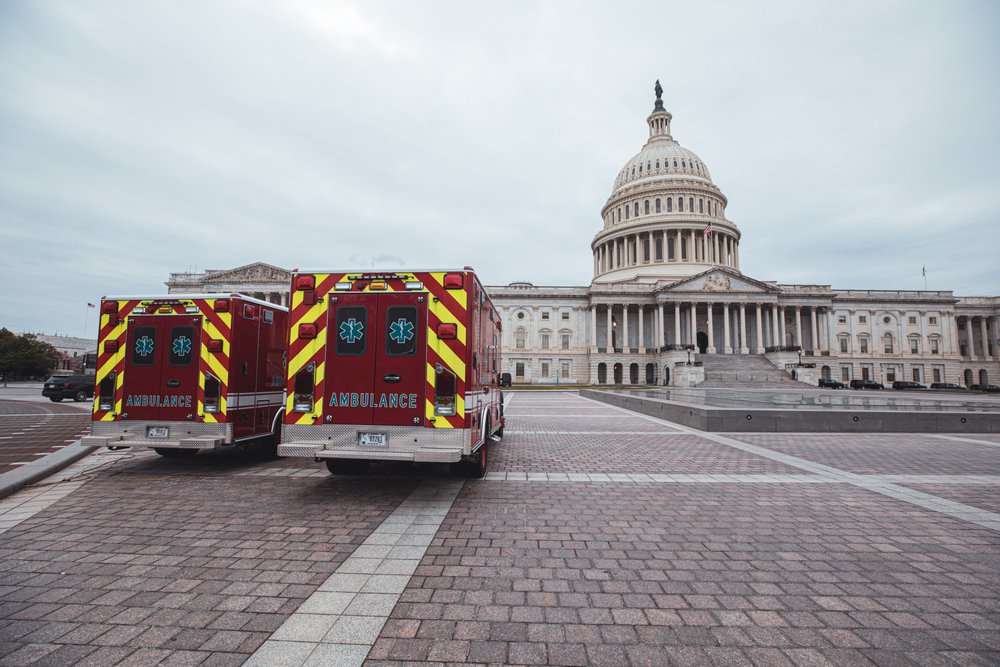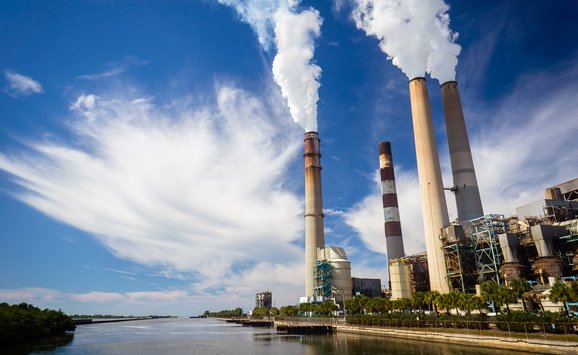Supreme Court Justice Ruth Bader Ginsburg passed away at the age of 87 last week, after nearly thirty years of serving in the nation’s highest court. While she was most known for her women’s rights advocacy and her often blistering written dissents, Ginsburg also played a significant role in shaping environmental policies. She authored a landmark majority opinion in 2001 that made it easier for environmental groups to sue polluting companies, and she was a pivotal fifth vote in a 2007 case that gave the federal government authority to regulate greenhouse gas emissions as air pollutants. And across many of her dissenting opinions, she advocated a more sweeping interpretation of the government’s authority under the Clean Water Act.
Much remains uncertain about how a changing judiciary will impact the federal government’s influence on the environment over the coming decades. But at an event last year, Ginsburg expressed optimism about the future. Speaking about climate activists like Greta Thunberg, Ginsburg offered, “One of the things that makes me an optimist are the young people.”

Each week, we’re compiling the most relevant news stories from diverse sources online, connecting the latest environmental and energy economics research to global current events, real-time public discourse, and policy decisions. Here are some questions we’re asking and addressing with our research chops this week:

How much do Americans want policymakers to consider environmental concerns in future coronavirus stimulus packages?
Talks about coronavirus relief were already deadlocked—but the prospect of another stimulus package has grown even more remote this week, with the Senate now preparing for a bitter confirmation battle to fill the newly open Supreme Court seat. The consequences of gridlock could be significant, prompting Federal Reserve Chair Jerome Powell to remark that “all government working together” will be essential during this precarious time for the US economy. Congressional Democrats have been steadfast in their support of a more far-reaching stimulus package, introducing a resolution earlier this month that recommends new federal investments in renewable energy and centers environmental justice concerns. Such proposals mirror actions already taken by France and South Korea, two of a growing number of countries that have pursued a “green recovery” with their stimulus packages. But congressional Republicans have resisted attempts to consider environmental concerns, casting these efforts as out of touch with the immediate needs of unemployed Americans and distracting from economic recovery in the United States.
But green stimulus policies don’t seem to be as unpopular among Americans as many politicians contend. According to a new survey coauthored by RFF University Fellow Jon Krosnick—the third in RFF’s ongoing Climate Insights 2020 series—Americans overwhelmingly support tax breaks for renewable energy companies and efforts to reduce emissions from power plants. Despite the common argument that people care less about environmental issues during times of economic hardship, about two-thirds of Americans hope that future stimulus packages include provisions designed to create jobs and technologies that reduce global warming. “It may be that people are seeing more of an impact on them personally, or their cherished values, or groups that they care about,” Krosnick hypothesized at an RFF event this week. “But it’s a real surprise to see this surge.” For more, watch a recording of the event, in which Krosnick and other panelists explore the importance of these shifts in public opinion on future policymaking and this year’s presidential election.
Related research and commentary:

Interest in mining materials in outer space is growing. How much would such efforts bring economic and scientific benefits? Could space mining foment geopolitical conflict?
The United States and China are quickly scaling up efforts to mine materials in outer space, igniting fears of a new space war. After President Trump signed an executive order earlier this year declaring that space should not be a “global commons,” his administration has promised to pay for rocks collected from the moon’s surface by private companies, and has been at work drafting an international agreement that would allow companies to own resources they mine outside Earth. China is laying the groundwork to mine in outer space, too, with one Chinese startup aiming to send spacecraft to the moon this year to test potential mining technologies. Much of the world is uneasy about these developments, and a global coalition of scientists and former government officials is calling on the United Nations to develop a treaty that regulates space mining—similar to how the Antarctic Treaty System has banned mining indefinitely in Antarctica.
On a new episode of Resources Radio this week, Alex Gilbert from the Payne Institute for Public Policy at the Colorado School of Mines explores how the United States has quickly emerged as a global leader in space resources development. The nation’s “innovative business culture” and NASA’s increasing reliance on public-private partnerships have generated new commercial interest in outer space and have helped reduce the launch costs for ambitious missions. Still, Gilbert cautions that commercial mining projects are only in the nascent stages, and more effort is required to locate the most lucrative resources, establish coherent legal frameworks governing outer space, and minimize possible environmental damages. “If we're looking at outer space mining as a future part of the economic sphere—as part of the geostrategic sphere—how do we manage that in a way that's equitable? How do we make sure that does not lead to future conflict back on Earth?” Gilbert asks. “That's going to be a challenge.”
Related research and commentary:

How should fuel economy standards be structured to most efficiently reduce emissions?
Recent research has found that the federal government’s long-running fuel economy standards have saved consumers money and have greatly reduced greenhouse gas emissions—and the study’s authors recommend more stringent regulations in the coming years. But the future of these standards depends on the results of this year’s presidential election. Democratic nominee Joe Biden has emphasized that his administration would make fuel economy standards more ambitious than under the Obama administration, while the Trump administration currently is embroiled in lawsuits surrounding its push to relax federal fuel economy standards and limit California’s authority to set its own regulations. And while an appeals court recently rejected the current administration's attempt to make penalties less severe for automakers that fail to meet fuel economy requirements, the case also makes clear how pivotal the federal judiciary is to environmental policy, and the significance of the president's power to fill judicial vacancies.
Given the likelihood of Joe Biden pursuing greenhouse gas reduction policies if he is elected president, RFF Senior Fellow Joshua Linn explores in a new issue brief how fuel economy standards can be made more efficient. The US Environmental Protection Agency typically sets identical fuel economy standards for cars within the same vehicle class, effectively assuming that all cars within that class travel about the same number of miles over their lifetime. But according to Linn, real-world mileage for vehicle models within the same class can vary by as much as 10 to 15 percent, so treating an entire vehicle class the same effectively encourages automakers to reduce emissions from vehicles that are on the road less. Instead, Linn proposes that policymakers structure fuel economy standards around a vehicle’s actual miles traveled, rather than a vehicle’s type. “[This] would reduce the costs of achieving [greenhouse gas] standards appreciably—perhaps as much as 30 percent,” Linn says.
Related research and commentary:
- Issue brief: Reducing the Costs of Federal Fuel Economy and Greenhouse Gas Standards by Accurately Estimating Lifetime Vehicle Miles Traveled
- Report: Making Sense of the Trump Administration's Fuel Economy Standard Rollback
- Magazine: The Effect of Standards for New Vehicle Fuel Economy and GHG Emissions on US Consumers







